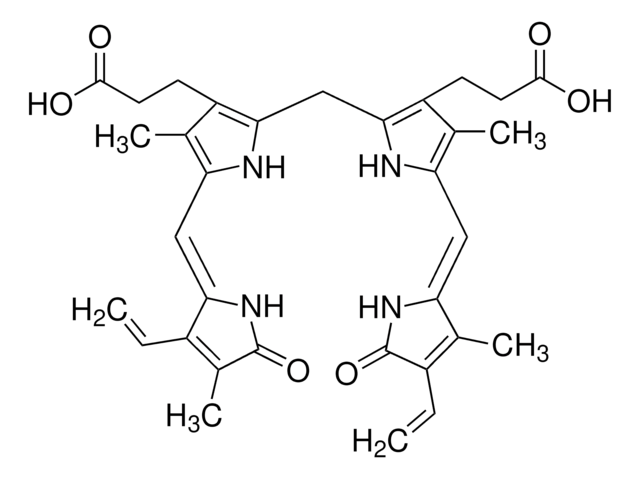T2009000
Trilaurin
European Pharmacopoeia (EP) Reference Standard
Synonym(s):
Glyceryl tridodecanoate, 1,2,3-Tridodecanoylglycerol, 1,2,3-Trilauroylglycerol, Glycerol trilaurate, Glyceryl trilaurate, Tridodecanoin, Trilaurin
About This Item
Recommended Products
grade
pharmaceutical primary standard
API family
trilaurin
manufacturer/tradename
EDQM
mp
46.5 °C (lit.)
application(s)
pharmaceutical (small molecule)
format
neat
storage temp.
−20°C
SMILES string
CCCCCCCCCCCC(=O)OCC(COC(=O)CCCCCCCCCCC)OC(=O)CCCCCCCCCCC
InChI
1S/C39H74O6/c1-4-7-10-13-16-19-22-25-28-31-37(40)43-34-36(45-39(42)33-30-27-24-21-18-15-12-9-6-3)35-44-38(41)32-29-26-23-20-17-14-11-8-5-2/h36H,4-35H2,1-3H3
InChI key
VMPHSYLJUKZBJJ-UHFFFAOYSA-N
Looking for similar products? Visit Product Comparison Guide
General description
Application
Packaging
Other Notes
Storage Class Code
11 - Combustible Solids
WGK
nwg
Flash Point(F)
Not applicable
Flash Point(C)
Not applicable
Choose from one of the most recent versions:
Certificates of Analysis (COA)
Sorry, we don't have COAs for this product available online at this time.
If you need assistance, please contact Customer Support.
Already Own This Product?
Find documentation for the products that you have recently purchased in the Document Library.
Customers Also Viewed
Our team of scientists has experience in all areas of research including Life Science, Material Science, Chemical Synthesis, Chromatography, Analytical and many others.
Contact Technical Service









